How to Clear Web History and Delete Browsing Activity on Any Device
Keep your browsing sessions and information away from prying eyes.
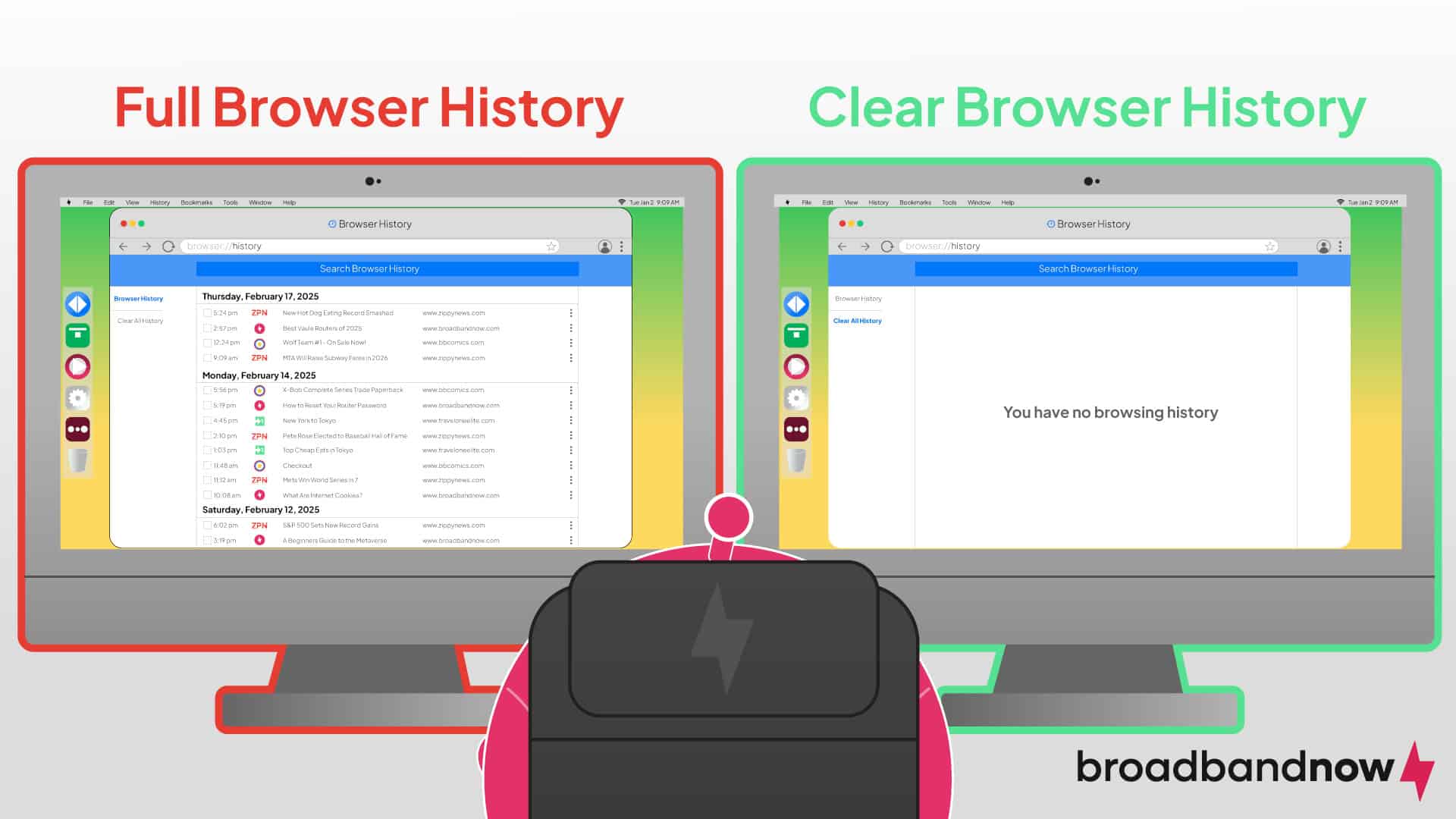
Your browser history can reveal a lot about you — your search habits, personal interests and even sensitive information. Whether you’re looking to enhance your privacy, protect personal data or simply clear out clutter, knowing how to delete your browsing history properly is essential. In this guide, we’ll walk you through the steps to erase your online activity across different browsers and devices to help you maintain your privacy and secure your online experience.
Overview of Clearing Browser History
- What Information Is Stored in Your Browser?
- How to Clear History on Web Browsers
- How to Clear Browser History on Mobile Devices
- Managing Cookies, Cache and Search History
- Automatic Deletion and Private Browsing
- Advanced Privacy Tips for Browsing History
- Troubleshooting Common Browser History Issues
What Information Is Stored in Your Browser?
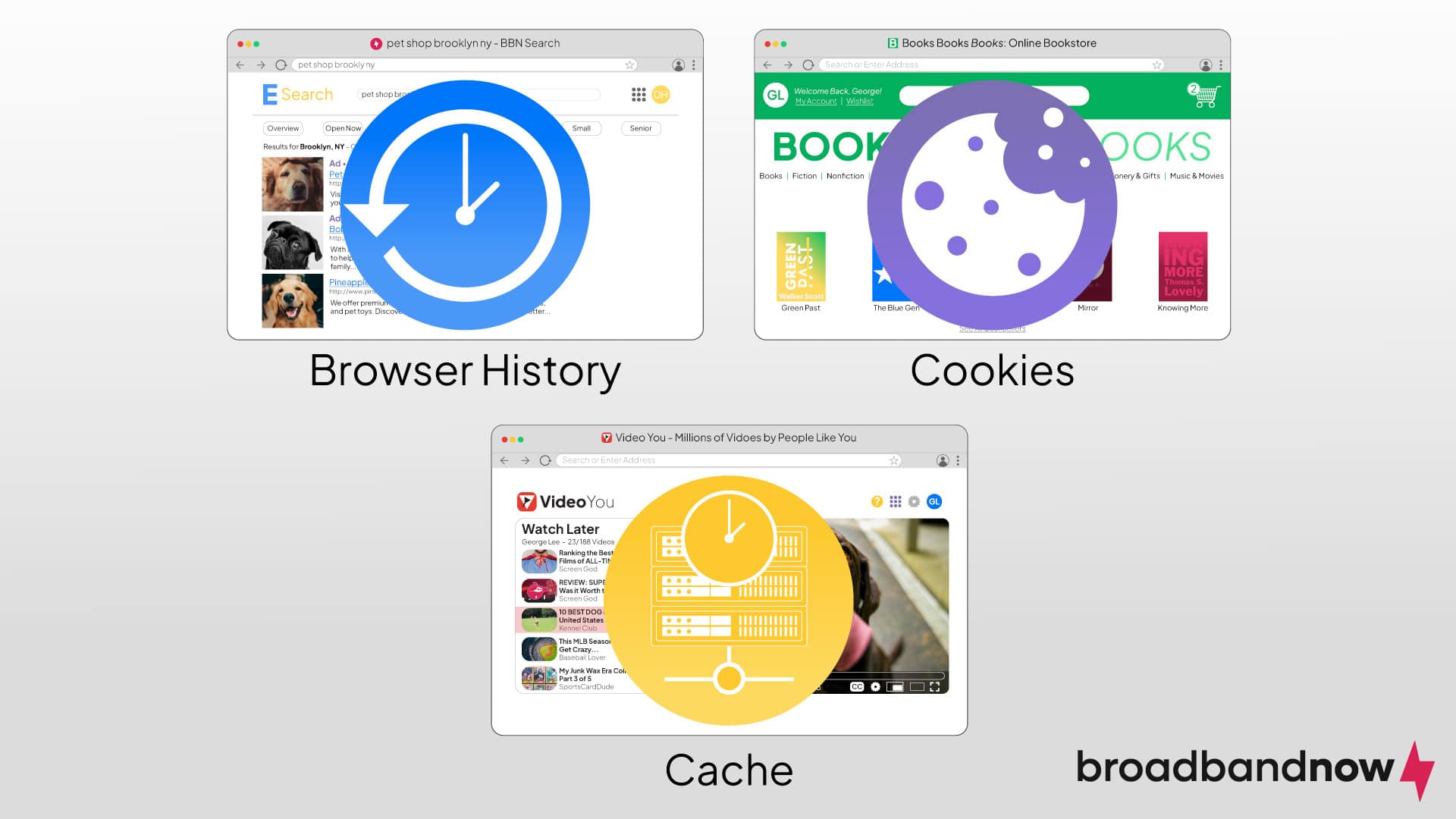
When you browse the internet, your browser stores various types of data to enhance your browsing experience. Your browser remembers which website pages you visit so you don’t need to type the same URL every time, and it stores files that remember your login details so you don’t have to.
The most common information your browser logs is your search history, which keeps track of the websites you visit and the terms you search for, helping you easily revisit past pages. Beyond search history, browsers also store cookies — small files that remember your preferences, login details and shopping carts, allowing for a more personalized experience. Your browser also keeps a cache, which temporarily saves files such as images, scripts and videos from websites, speeding up load times when you revisit them.
While you might delete browsing history to protect your privacy, this action doesn’t automatically delete other stored data, such as cookies and cache. Each type of stored information must be cleared individually or by selecting more comprehensive options in your browser’s settings. For example, clearing only your search history won’t log you out of websites (cookies) or remove stored images and files (cache). To fully delete your online footprint, you’ll need to address each of these areas separately.
How to Clear the Web History on Your Desktop
| Browser | Where to Access Browser Settings |
|---|---|
| Google Chrome | History |
| Safari | History |
| Mozilla Firefox | History |
| Microsoft Edge | Settings |
| Vivaldi | Tools |
| Opera | History |
Clearing your web browser history follows similar steps across multiple desktop web browsers. Each process may vary slightly, however, so follow the steps below to learn how to clear your favorite browser.
Google Chrome
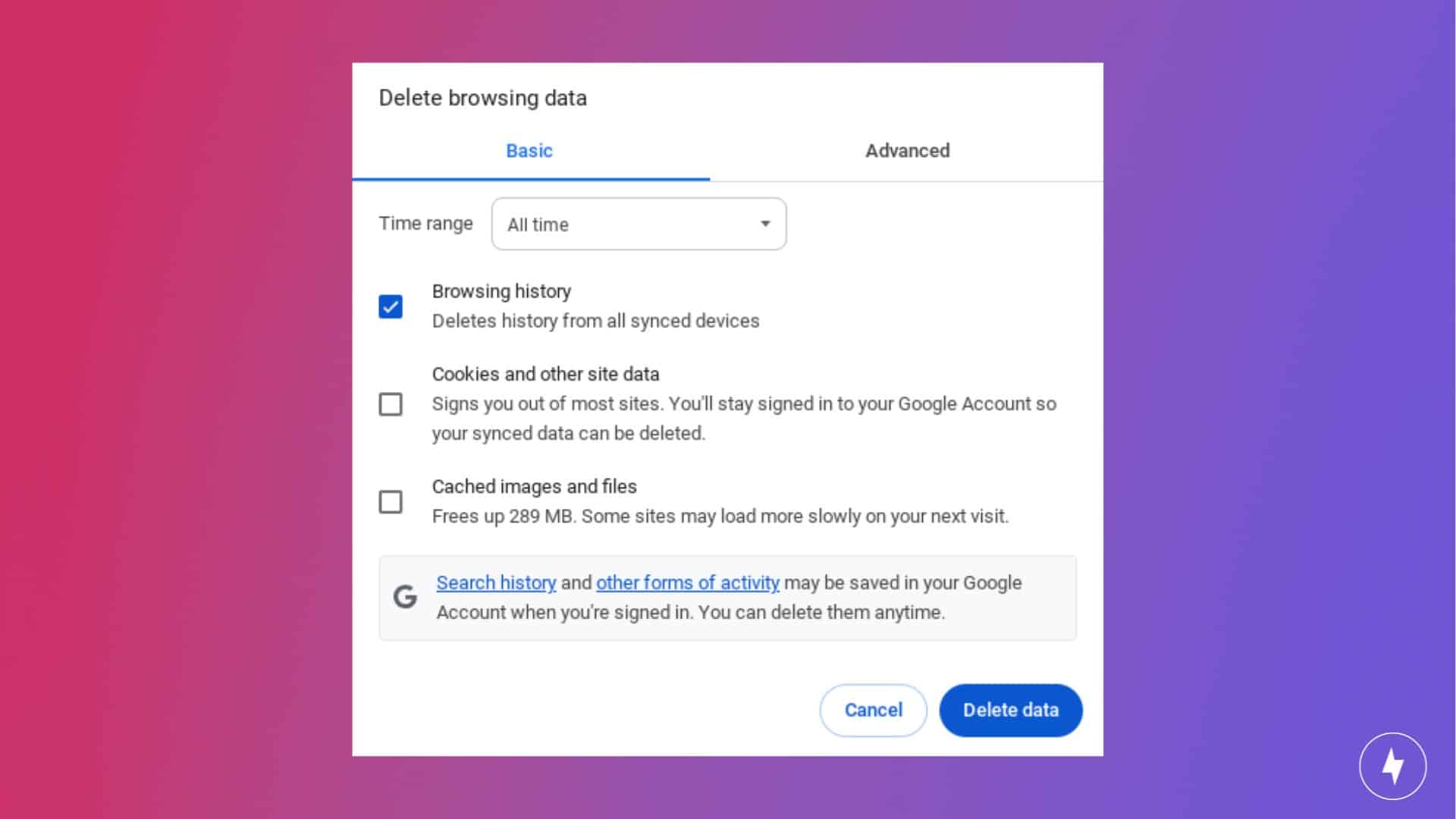
- Select the three vertical dots in the right corner.
- Hover over History and select History. This will open a new window.
- Navigate to the left menu selection and select Delete Browsing Data, which will open another new window.
- Select the box beside Browsing History.
- Select Delete Data.
Are you more of a visual learner? Check out our video outlining the steps on how to clear your browsing history on Chrome and subscribe to our YouTube channel for more vidoes just like this!
Safari
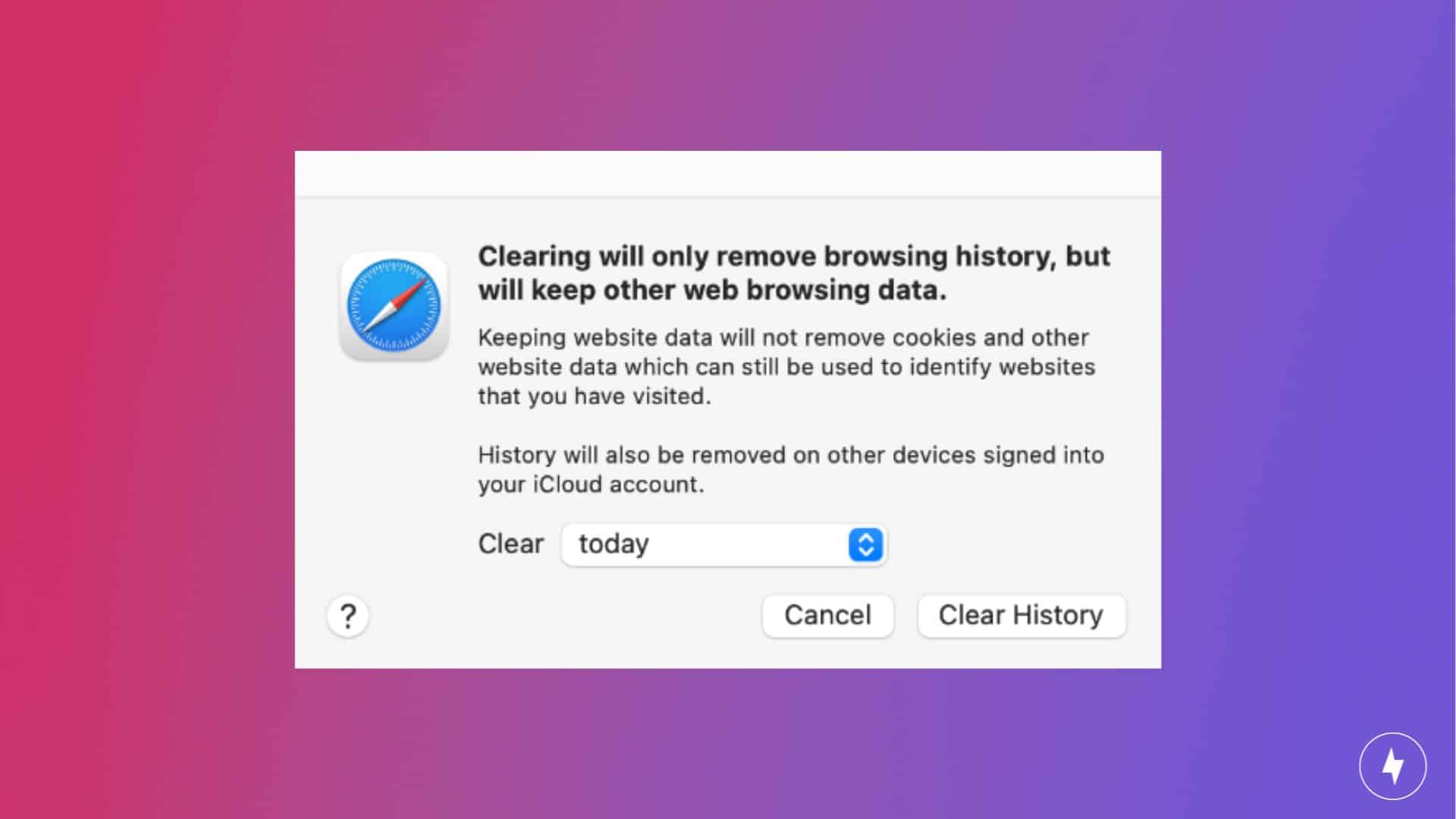
- Navigate to the Safari app on your Mac desktop.
- Select History and then choose Clear History.
- Select the pop-up menu.
- Select a date range for how far back you want your browser history cleared.
- Select Clear History.
Check out the video version of how to clear your browsing history on Safari:
Mozilla Firefox
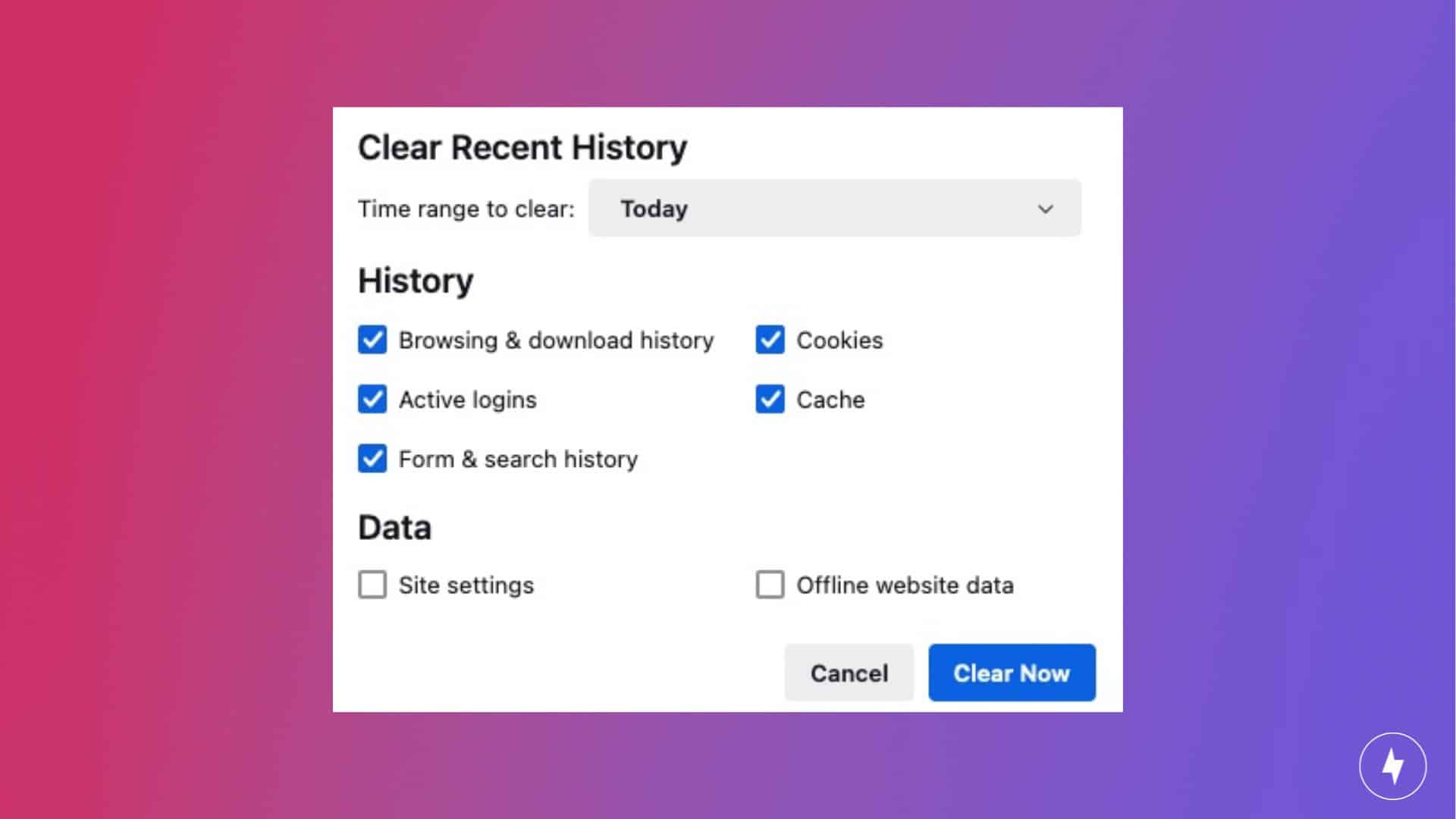
- Select the Menu button and then select History.
- Next to the Time Range, click the drop-down menu to select how far back you want to delete your history.
- Next to Details, click the arrow to select which information you want to clear.
- Select Clear Now.
Microsoft Edge
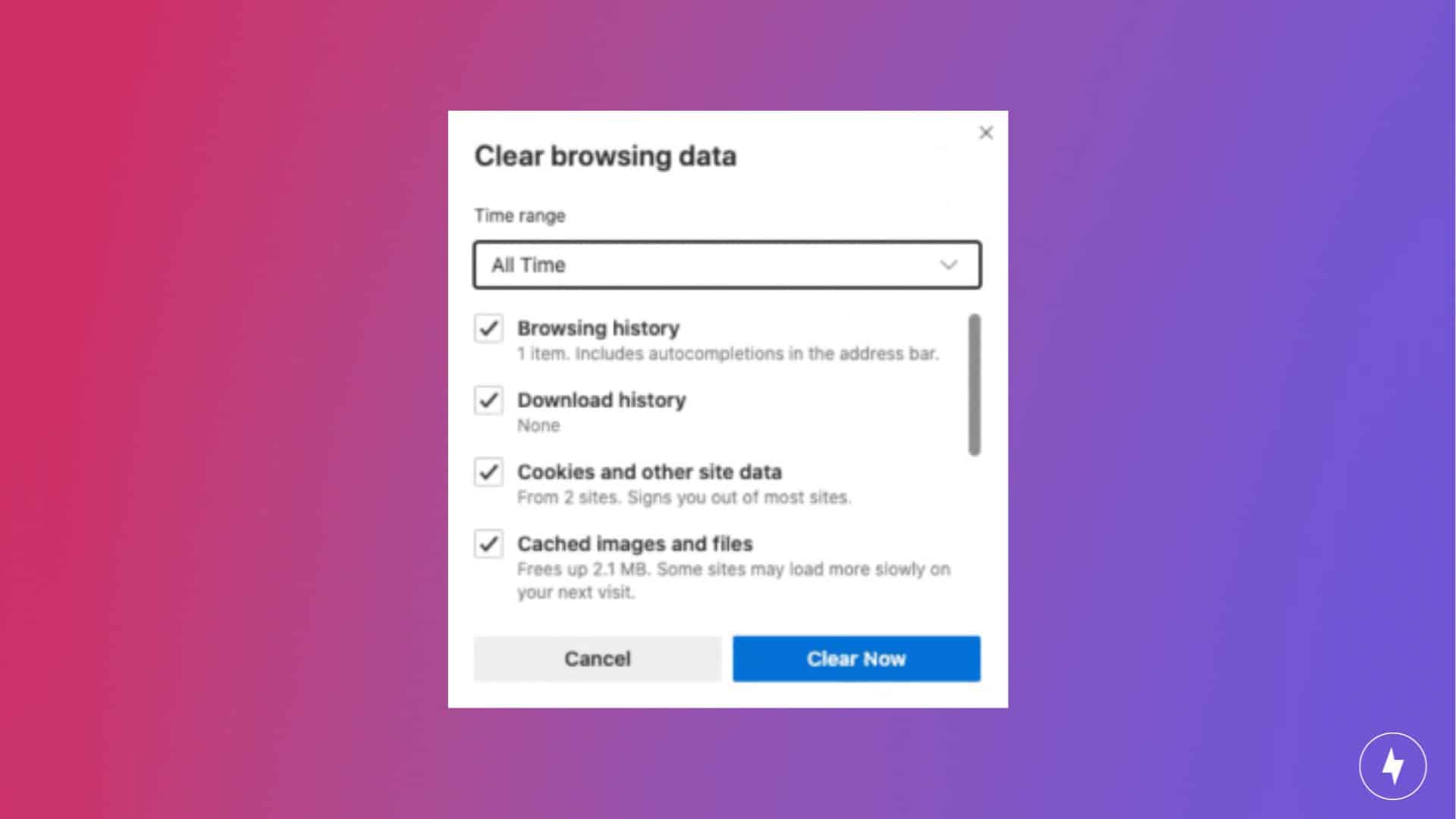
- Navigate to Settings and more and choose Settings.
- Select Privacy, Search and Services.
- Navigate to Clear Browsing Data, and choose which data to clear.
- From the time range list, select a time range for deletion.
- Select the box next to Browsing History and then select Clear Now.
Vivaldi
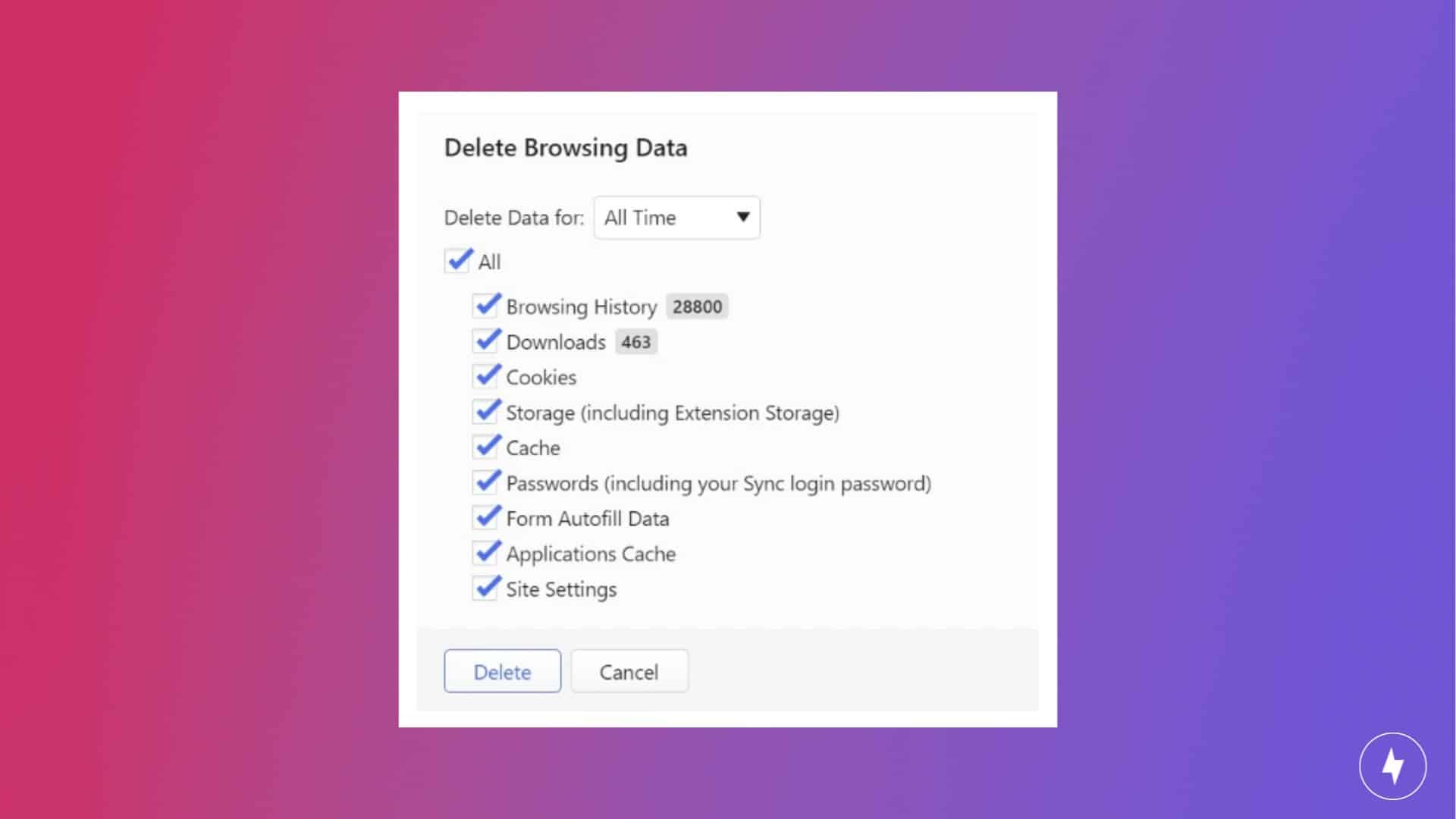
- Navigate to Menu and select Tools.
- Select Delete Browsing Data.
- Select the time range for which you want to delete data.
- Choose which data you’d like to delete.
- Select Delete.
Opera
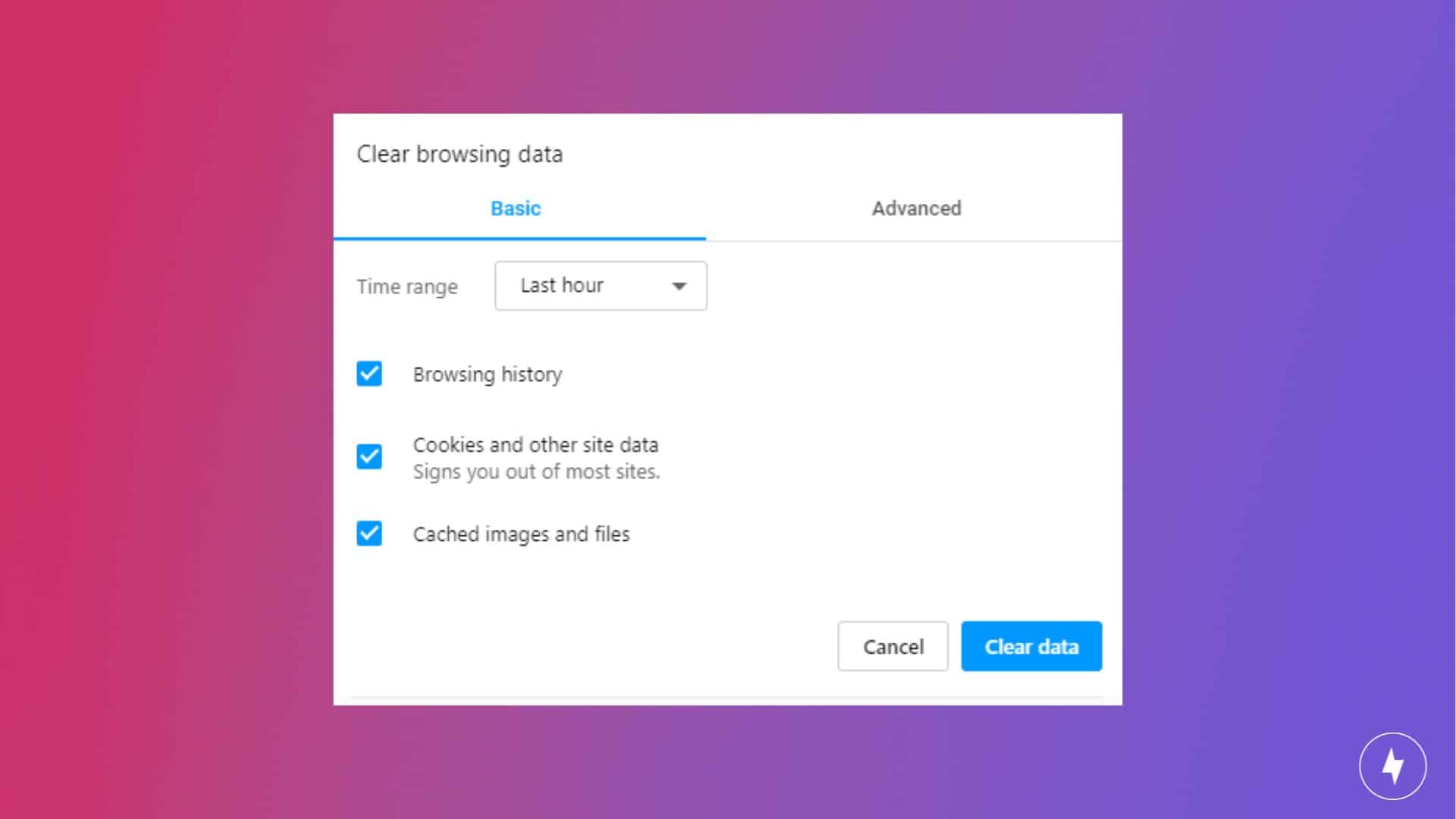
- From the Start page, select History.
- Select the three-dot menu and choose Clear History.
- Check the prompt and select Clear Data.
How to Delete Browser Activity on Mobile Devices
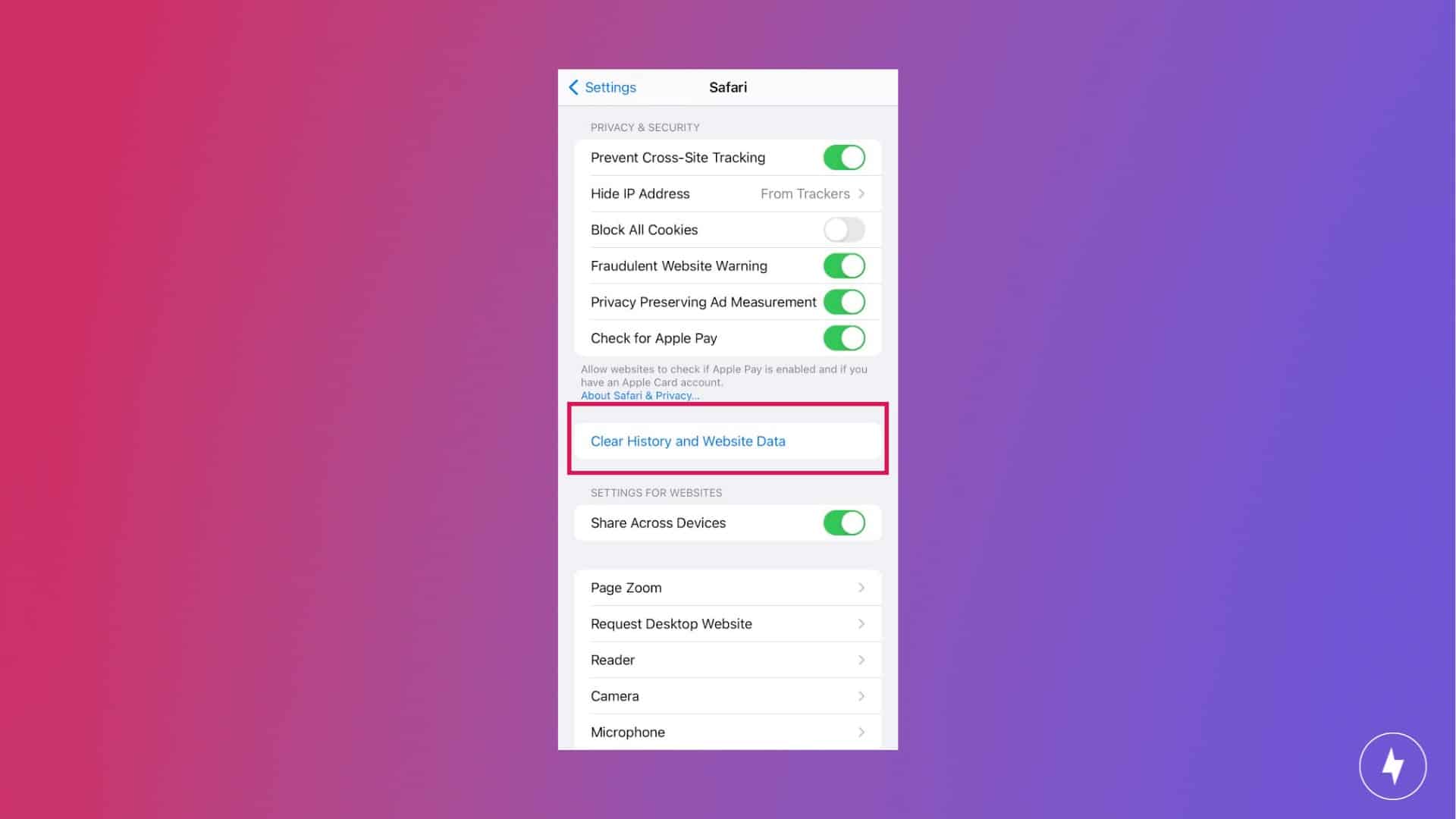
Similar to desktop browsers, the steps to clearing your mobile browser history will vary depending on which browser you’re using.
- iOS Devices: Navigate to your phone’s Settings and select Safari. Scroll down to Clear History and Website Data. Confirm deletion.
- Android Devices: Open your preferred browser and navigate from Menu to Settings to Privacy. Select Clear Browsing Data and then Confirm.
For other devices or those using specific browser apps, you can navigate to the mobile app and select settings. Clearing web history can usually be found in Privacy and Security.
Managing Cookies, Cache and Search History
Cookies, cache and search history each serve different purposes, from storing login information to speeding up web page load times. Whether you’re browsing on a desktop or mobile device, clearing these elements periodically ensures better privacy and a smoother browsing experience. Below, we’ll walk you through the steps for clearing cookies, cache and search history, which may vary slightly based on your preferred browser or search engine.
Clearing Cookies
Clearing cookies is recommended if you’re concerned about privacy, experiencing login issues or want to reset saved website preferences. Cookies are small files that websites store on your browser to remember user preferences, login information and shopping carts. While cookies can enhance your browsing experience by saving time on frequently visited sites, they also track your online behavior and can compromise privacy.
Across desktop and mobile browsers, the clearing cookies option can usually be found in the same area as clearing browser history. When deleting this information, you’ll likely need to click a different box for clearing cookies alongside clearing browser history.
Clearing the Cache
Regularly clearing your cache can free up storage space, speed up your browser and ensure you’re viewing the most up-to-date content. The browser cache stores temporary files such as images and scripts from websites, which helps reduce load times when you revisit those pages. However, these cached files can build up, slowing down your browser and causing outdated versions of websites to load.
Similar to cookies, clearing your cache can be found in the same location as clearing browser history. A simple check mark beside the cache can clear this information with other stored browser data.
Clearing Search History
Removing your search history prevents others from seeing your past searches and ensures a clean slate for future browsing sessions. Your search history logs the websites you visit and the terms you search for, creating a detailed record of your online activity. Clearing this history is a good practice if you share your device with others or want to maintain privacy.
The steps to clear your browser history depend on which search engine you use. Google is the most frequently used search engine; clear your search history by following the steps below.
- On a desktop computer or mobile device, select your profile icon in the top right corner.
- Navigate to Search History.
- Select Delete, which will prompt a drop-down menu.
- Choose your time range and the history will be deleted.
Google-alternative search engines, such as Bing and Yahoo, can be cleared by navigating to the Settings section and then selecting Search History.
Automatic Deletion and Private Browsing
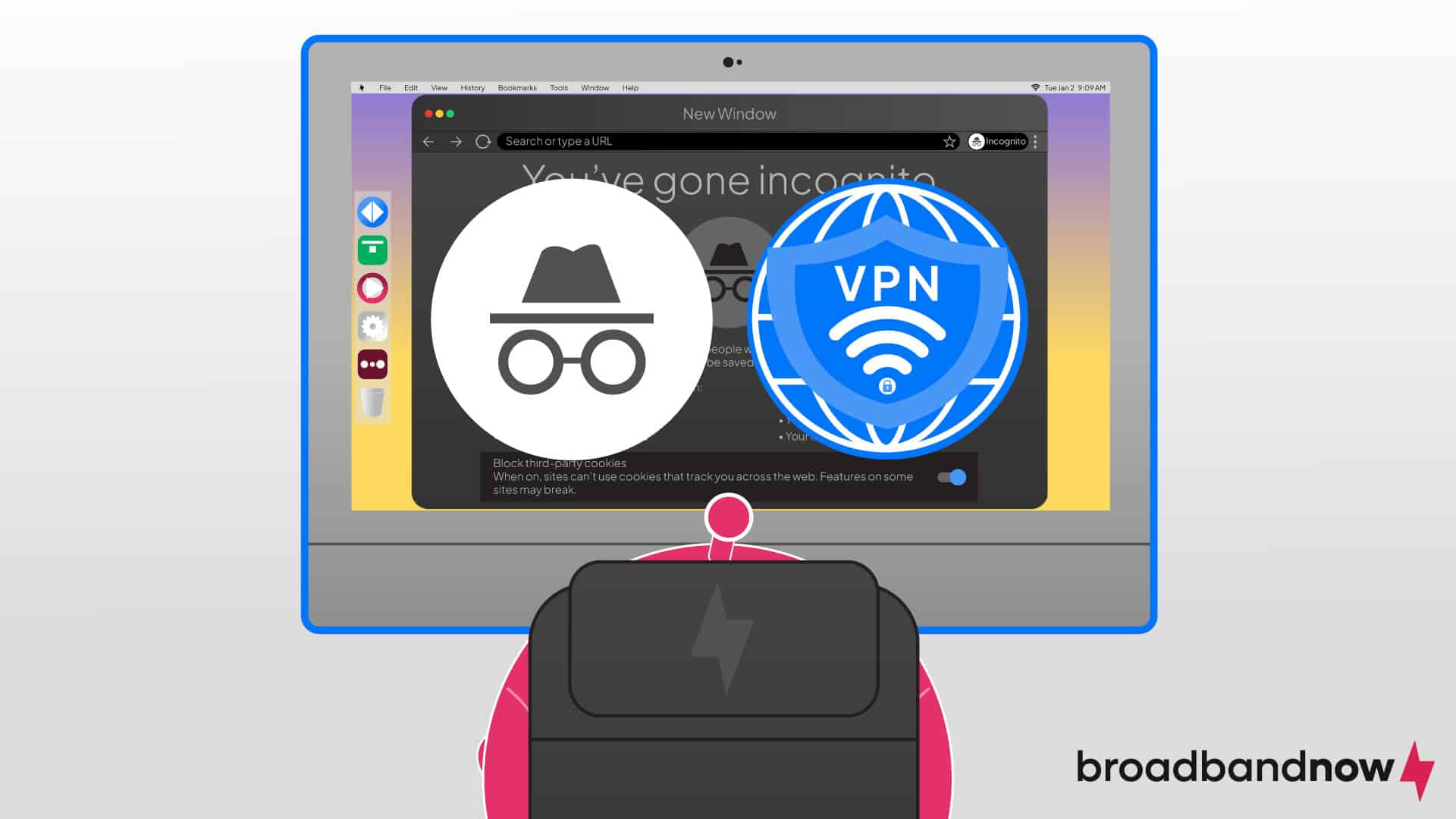
If you’re looking to keep your online shenanigans under wraps without lifting a finger, automatic browser deletion is your new best friend. Many browsers let you set things up so your browsing history, cookies and cache vanish into thin air every time you close the browser. Navigate to your browser’s privacy settings and tweak the options to clear out the clutter automatically.
Another useful tool for online privacy is private browsing. When you open a private or incognito window, your browser won’t save your search history, cookies or cache for that session. This feature is especially great for keeping your activities hidden on shared devices or when diving into sensitive info. However, private browsing only hides your activity from other people using the same device — it doesn’t make you invisible online. Your internet service provider (ISP), websites and even advertisers can still keep an eye on you.
To take your privacy to the next level, using a virtual private network (VPN) is a savvy step beyond private browsing. A VPN encrypts your internet connection, hiding your IP address and making it way tougher for anyone to snoop on your online antics. A VPN, such as NordVPN, won’t scrub your browser history squeaky clean, but it adds an extra layer of privacy.
Advanced Privacy Tips for Browsing History
If you want to take your browser privacy to the next level, several tools and settings can help you automatically manage your data and limit tracking.

- Auto-Deletion in Google Account: Google allows you to automatically delete your browsing activity across devices, or have your browser auto-delete whenever you close out:
- Go to your Google Account. Navigate to Data & Privacy and then Web & App Activity.
- Select Auto-delete and choose a time frame.
- Google will automatically remove older activity, helping you maintain a rolling history without manual clearing.
- iCloud Privacy Settings: Apple users can strengthen privacy with iCloud:
- Open Settings and select your name.
- Choose iCloud.
- Enable iCloud Private Relay to mask your IP and browsing activity.
- Use Clear History and Website Data regularly, or combine with automatic iCloud syncing for consistent deletion across devices.
- Firefox Enhanced Tracking Protection: Firefox offers built-in tools to block trackers and protect your history:
- Go to Settings. Navigate to Protection Settings and then choose Enhanced Tracking Protection.
- Set it to Strict to block known trackers and cookies that can record your browsing habits.
Troubleshooting Common Browser History Issues
Even after deleting browser history, you might notice some entries reappearing or only part of your history being deleted. Here’s how to fix these common problems:
- Synced History Reappearing: If you use multiple devices with the same browser account (like Chrome or Firefox), your history may sync back automatically. To fix this, turn off sync in your browser settings before clearing history, and then clear history on all devices connected to the same account. Once cleared, you can re-enable sync if needed.
- Partial Deletions: Sometimes only certain items are removed, leaving behind cached pages or cookies. To ensure a complete cleanup, clear browsing data from all time ranges, not just recent activity. Include cache, cookies and site data in addition to history. Restart your browser after clearing data to finalize changes.
- Browser Extensions Interfering: Extensions can occasionally prevent history from being fully deleted. To troubleshoot, disable all extensions temporarily and clear your history again. Re-enable extensions one at a time to identify the culprit.
- Private or Incognito Mode Confusion: Browsing in private/incognito mode doesn’t save history, but some sites may still appear due to cookies or cached data. Make sure to clear cookies and cache if you notice info left behind.
Frequently Asked Questions About Browser History
Should I clear all browser history?
If you regularly access sensitive information or share your device with others, clearing your history can keep your online activity private. It’s also useful for decluttering saved browsing data that may slow down your device. Keep in mind that clearing all history may also remove helpful information such as login details and frequently visited websites, which make everyday browsing more convenient.
Can anyone see my history after I delete it?
Once you delete your browser history, other users on the same device won’t be able to snoop on your visited sites or searches. But just because it’s wiped from your browser doesn’t mean it vanished into thin air. Your internet service provider, network admins or even the websites you’ve visited might still know about your browsing habits.
Can an internet provider see your history if you delete it?
Even after you delete your browser history, your ISP can still see and track your browsing activity. ISPs store records of the websites you visit, and this data is accessible to them regardless of whether you’ve cleared it from your browser. To prevent ISPs from seeing your activity, you can use a VPN, which makes it much more difficult for your ISP to track your online movements.
Is there a downside to clearing browser history?
While clearing your browser history boosts privacy and declutters your digital life,there are some downsides. Deleting history, cookies and cache can log you out of websites, meaning you’ll need to re-enter those pesky login credentials. Plus, websites might load slower since your browser has to reload images and scripts from scratch. If you love auto-fill or have a set of frequently visited tabs, clearing history can throw a wrench in your smooth browsing experience.
How discreet is incognito?
Incognito or private browsers are great for shielding your online activities from people in your household, but they’re not completely private. Your internet service provider, websites and network administrators can still track your browsing behavior. Incognito mode is more about maintaining privacy on your device rather than making you invisible online.
How do I delete browsing activity automatically?
Most browsers let you automatically clear web history on exit or at regular intervals. In Chrome or Firefox, you can select to delete browsing history whenever you close the window in the privacy or settings menu. Safari users can set history retention to a specific time frame. You can also use private or incognito mode to prevent history from being saved in the first place. For added control, browser extensions or security software can schedule automatic deletion.
Can I recover deleted web history?
You may be able to recover cleared web history by performing a system restore, which restores your device to a previous session before you deleted history. If your browser is connected to a Google, Microsoft or Apple account, check your activity logs, as some online history may still be stored in the cloud. On a work or school device, administrators might have access to activity records.